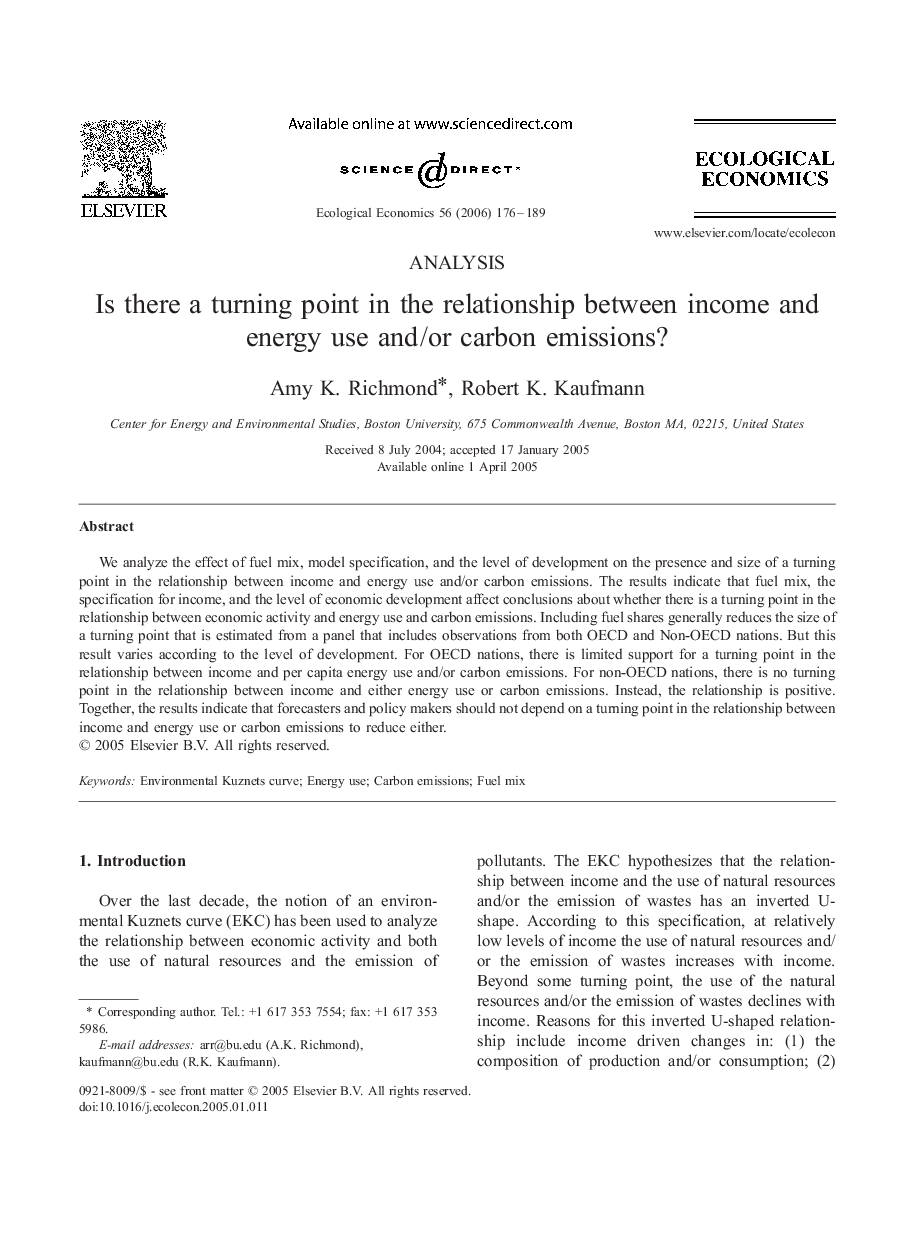| Article ID | Journal | Published Year | Pages | File Type |
|---|---|---|---|---|
| 5052224 | Ecological Economics | 2006 | 14 Pages |
We analyze the effect of fuel mix, model specification, and the level of development on the presence and size of a turning point in the relationship between income and energy use and/or carbon emissions. The results indicate that fuel mix, the specification for income, and the level of economic development affect conclusions about whether there is a turning point in the relationship between economic activity and energy use and carbon emissions. Including fuel shares generally reduces the size of a turning point that is estimated from a panel that includes observations from both OECD and Non-OECD nations. But this result varies according to the level of development. For OECD nations, there is limited support for a turning point in the relationship between income and per capita energy use and/or carbon emissions. For non-OECD nations, there is no turning point in the relationship between income and either energy use or carbon emissions. Instead, the relationship is positive. Together, the results indicate that forecasters and policy makers should not depend on a turning point in the relationship between income and energy use or carbon emissions to reduce either.
